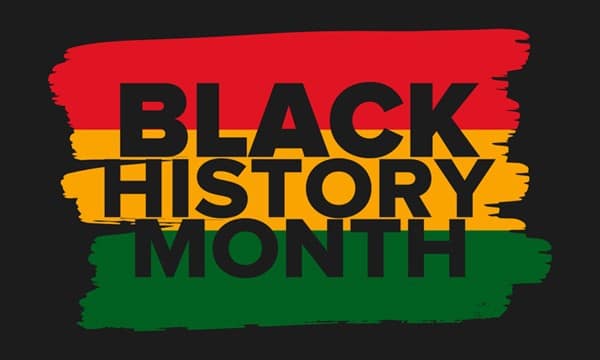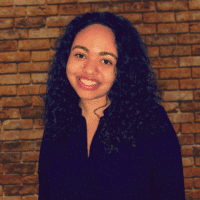Celebrating Black History Month at Action Tutoring

Action Tutoring Programme Coordinator for Birmingham, Grace Brooks, talks about her experience coming from a mixed heritage background and discusses with colleague Fleur Nicholson, about steps we can take to increase equality and diversity in the school curriculum, in Action Tutoring and in society more widely.
We are finally in October, and at Action Tutoring we’re highlighting the need for reflection and celebration of Black History Month.

As a mixed-race woman, Black History Month for me is about being seen, heard and valued. Although when doing so, we sometimes forget to include those with mixed heritage in this group. Unfortunately, we are all guilty of overlooking certain groups, even within our own community. That is not to say we should pay no attention to Black history, but to say that we should look at all Black history: those from African descent, those from the Caribbean descent, those from mixed descent etc. Black history is our history and mixed heritage history is our history – they are not separate.
Black history is our history and should not be separately taught within our schools nor should you need to wait until university before you can learn about British Black history. So many of us are left unaware of the astonishing impact and contributions of the Black community across our history and our culture, including in our literature.
This absence was highlighted by the recent TeachFirst report ‘Missing pages’, which calls for an increase to the representation of ethnic minority authors in English literature lessons. For example, currently the biggest exam board does not include a single book by a Black author in their English Literature GCSE specifications.
Why can’t we see and teach our children the powerful impact that people of colour have had on our society when everyone was against us? That would personally inspire me if I was a 13-year-old girl, not just the white British topics I was taught in class. It is crucial to tell the whole story from all perspectives and celebrate every achievement and contribution.
We often forget to look at and reflect on how much of an impact people of colour have had and continue to have on our society; we are almost forgotten. We need to provide platforms for Black people to speak up, be recognised and celebrated and be appreciated in our community, and education is one place this can start.
As part of #BlackHistoryMonth, we want to celebrate the inspirational American mathematician and aerospace engineer – Mary Jackson.
Mary is used as a case study in our English Workbook for Primary school pupils – find out more about her work here: https://t.co/ukRMHUSwaC pic.twitter.com/WvSZmrVYKs— Action Tutoring (@ActionTutoring) October 14, 2020
Enterprises like The Black Curriculum can help to address the lack of British history in our schools. So that all young people can be educated fully before reaching adulthood. This social enterprise delivers arts-focused Black history programmes to help equip young people, as well as providing teacher training and campaigning to change the curriculum.
We need to educate the younger generation by teaching an accessible curriculum for all, providing all children with a sense of identity and importance in our society. The work The Black Curriculum does, has the potential to inform and educate young people of colour on their own history, as well as their peers’.
The TeachFirst report includes perspectives from four English teachers on why representation matters and how they have introduced a greater diversity of authors in their own lessons. The paper also recommends other proactive measures that could help us progress, including changing the literature specifications for GCSE English, providing access to professional development for teachers and funding for schools to invest in books by ethnic minority authors.
We all need to recognise our privilege and ask ourselves what we will do to positively impact those around us. By acknowledging this you are accepting your responsibility and your potential to make a change. You must then decide on the actions you will take. These actions are not always big; they may be small, such as the way we speak to one another.
We need to ask ourselves: how can we personally take steps to increase equality and diversity? And not just for Black History Month but for every day of the year.
At Action Tutoring, we know we have a part to play in educating pupils. In the short term we are working to review all of our tutoring workbooks to audit their cultural representation and messaging. Any new resources we produce will follow new diversity criteria.
We are also creating diverse suggested reading lists for pupils. These will also be useful for tutors who may ask us about the kinds of texts they could bring to sessions for ‘reading for pleasure’ activities.
We are also establishing a Diversity and Inclusion working group internally to ensure we make sustained anti-racist action central to how we work.
As part of Black History Month, Action Tutoring is encouraging people to share inspiring stories of Black and mixed heritage figures on social media, to celebrate the outstanding contributions made by Black and mixed heritage communities throughout history. Please tag us in your posts on twitter @ActionTutoring and Instagram @actiontutoringuk.



